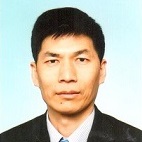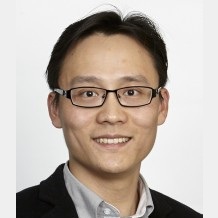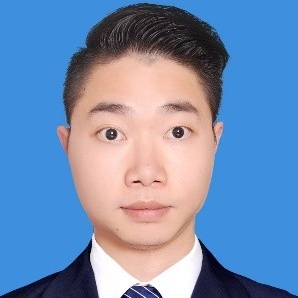Keynote Speakers

Prof. Youfu Li, IEEE Fellow
City University of Hong Kong, China
Biography: Prof. Li received the B.S. and M.S. degrees in electrical engineering from Harbin Institute of Technology China. He obtained the PhD degree from the Robotics Research Group, Dept of Engineering Science of the University of Oxford in 1993. From 1993 to 1995 he was a postdoctoral research staff in the Dept of Computer Science, University of Wales, Aberystwyth, UK. He joined City University of Hong Kong in 1995 and is currently a professor in the Department of Mechanical Engineering. His research interests include robot sensing, robot vision, 3D vision, visual tracking, sensor guided manipulation, mechatronics and automation. In these areas, he has published over 180 papers in SCI listed international journals. Dr Li has received many awards in robot sensing and vision including IEEE Sensors Journal Best Paper Award by IEEE Sensors Council, Second Prize of Natural Science Research Award by the Ministry of Education, 1st Prize of Natural Science Research Award of Hubei Province, 1st Prize of Natural Science Research Award of Zhejiang Province, China. He was on Top 2% of the world’s most highly cited scientists by Stanford University, 2020. He has served as an Associate Editor of IEEE Transactions on Automation Science and Engineering (T-ASE), Associate Editor of IEEE Robotics and Automation Magazine (RAM), Editor of the IEEE Robotics Automation Society's Conference Editorial Board (CEB) and Guest Editor of IEEE Robotics and Automation Magazine (RAM). He is a fellow of IEEE.
Title: 3D Visual Sensing and Tracking for Robotic Applications
Visual sensing and tracking are important for engineering applications including robotics. In this talk, I will present our research in visual sensing for automated 3D vision in general and for motion tracking for robotics in particular. I will present the issues related to robot vision, with different approaches in our investigation reported. These include passive and active vision approach to visual sensing. For robotic applications, visual sensing in 3D is often needed, but the calibration remains tedious and inflexible with traditional approaches. To this end, we have investigated the relevant issues for different types of visual sensing systems. A flexible calibration method desires the vision system parameters to be recalibrated automatically or with less operator interference whenever the configuration of the system is changed, but practically this is often hard to achieve. Various attempts were made in our previous works to enhance the flexibility in the vision system calibration. I will present some them including the work on gaze tracking where the issues in the modeling and calibration are addressed with our novel method developed.

Prof. Yu Bai
Monash University, Clayton, Australia
Biography: Prof. Yu BAI received his Bachelor’s and Master’s degrees in Civil Engineering from Tsinghua University, and his Ph.D. in Structural Engineering from the Swiss Federal Institute of Technology Lausanne (EPFL), Switzerland. He holds a full professorship in the Department of Civil and Environmental Engineering from 2018 at Monash University, Australia. His research efforts are dedicated to the development of connections and systems for structural assembly, using complementary material advantages, and through modern building technologies such as modular construction and robotic construction. He has published over 200 research papers in these fields and received more than 14,000 citations in his academic career. His research work has led to the completion of the handbook for the design of modular structure. He is the lead chief investigator for a large project awarded by the Australian Research Council focused on the multi-robot system for structural assembly and construction automation.
Title: Robotics-assisted structural assembly and construction
Civil construction often involves craft-based and labour-extensive processes intensively, which may lead to a large amount of energy consumption and material wastage. The methods of construction therefore become quite important for the sustainable development of the industry. In recent years, many sectors have made significant advancements through automation and robotic technologies, aiming to speed up, optimise and economise production. The construction industry can benefit from such advancements. This talk will present our recent and ongoing research activities for better design and smarter construction, particularly through design for manufacturing and assembly and modular construction and design for robotic construction. The development of our multiscale robotic system will be introduced including the large-scale and high-payload robot, medium-scale collaborative robots and mobile robots, alongside the software platform used for simulations. These advancements may hold the potential to elevate prefabrication to made-to-measure structural assembly and even enable automated construction of load-carrying structures.

Assoc. Prof. Teck Khim Ng
National University of Singapore, Singapore
Biography: Teck Khim is an Associate Professor of practice in the School of Computing, National University of Singapore. His research interest is mainly on geometrical computer vision, image processing and signal processing. Teck Khim earned his Ph.D. from Carnegie Mellon University in 1999. His thesis topic was on reconstructing 3D large scenes from 2D images. He obtained his bachelor and master degrees from National University of Singapore in 1992 and 1988 respectively. Teck Khim was with the defence R&D for the Ministry of Defence of Singapore for many years before joining the academia. Prior to joining NUS, he was running the Signal Processing Lab of DSO National Laboratories, Singapore. He is currently serving as a Vice Dean of NUS School of Computing.
Title: AI and Opportunities in Computer Vision Problems less Visited
Vision and Speech are two of the earliest fields that benefit from the great advances in AI for the past decades. Part of the reasons was due to the great fit between recognition problems and AI. Specifically, AI filled the gap that rules failed to adequately cover. Machine learning essentially replaces rules with probabilities learned from data. Image processing, recognition as well as speech recognition had since witnessed tremendous uplift in performance. Moving forward, opportunities abound beyond recognition problems in vision and speech. The talk will discuss some of these opportunities and their challenges to tickle the mind of the research community to venture into these problems.
Invited Speaker

Assoc. Prof. Wenhao KANG
Guangzhou Institute of Science and Technology, China
Biography: Prof. Kang holds a Doctor of Engineering degree from The Hong Kong Polytechnic University, specializing in Artificial Intelligence. He currently serves as an associate professor at the School of Artificial Intelligence, Guangzhou Institute of Science and Technology. With over ten years of industry experience in the FinTech department of a commercial bank, Prof. Kang has accumulated extensive practical expertise in digital banking projects and technology implementation. His primary research focuses include FinTech, artificial intelligence, knowledge graphs, and smart sensors. He has authored multiple academic papers published in renowned SCI-indexed journals, contributing valuable insights to the fields of AI and its application in finance and intelligent systems.
Title: Rapid Transfer of Robotic Manipulation Skills via Generative Adversarial Networks and Reinforcement Learning
Efficient transfer of manipulation skills across robotic systems remains a critical challenge in autonomous learning due to domain discrepancies, unstable training dynamics, and limited interpretability. Traditional reinforcement learning (RL) and imitation learning approaches rely heavily on task-specific retraining, resulting in slow adaptation and poor generalization to unseen environments. To address these limitations, this study proposes the Generative Adversarial-Reinforcement Transfer Network (GARTNet), which integrates dual-discriminator adversarial alignment and meta-adaptive reward optimization to achieve stable and data-efficient skill transfer. The dual-discriminator module aligns both domain-level and trajectory-level features, while the meta-adaptive reward dynamically adjusts exploration intensity based on policy uncertainty. Experimental results on three benchmark datasets, Meta-World v2, RoboSuite, and OpenAI Gym Manipulation, show that GARTNet achieves an average success rate of 88.5%, outperforming Meta-RL by 7.2 percentage points, and reduces convergence epochs by 21% while maintaining a robustness index above 85% under noisy conditions. The framework also demonstrates enhanced interpretability through latent feature alignment, with feature overlap increasing from 63% to 92% after adaptation. Overall, GARTNet provides a reproducible and computationally accessible solution for efficient robotic skill transfer, contributing both theoretically to adversarial reinforcement learning and practically to adaptive robotic manipulation in dynamic environments.
